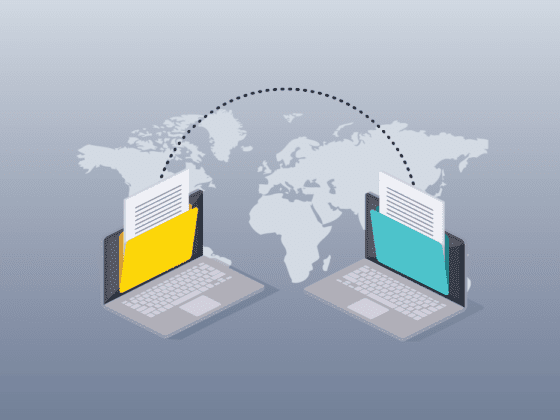We all know the stereotype that lawyers are technologically illiterate – but is it true? Andy Greene, Managing Partner at Nextpoint Law Group, shares his thoughts on lawyers and tech.
If you attend a presentation on legal tech, there’s a good chance that at least one of the panelists will make a joke about how lawyers are bad at adopting technology. The audience will usually laugh in knowing acknowledgement. After all, it’s an article of faith in the legal innovation echo chamber that us luddite attorneys are averse to anything that will increase efficiency and decrease billable hours.
Putting aside the soundness of painting all lawyers with the same broad brush, there is one big problem: It’s just not true. In fact, lawyers as a whole have been pretty good at adopting technology at exactly the rate at which clients demand.
When internet email started attracting widespread use, my law firm and most others started using email. After all, if a client is talking to you, you better be able to hear them. Lawyers were among the first to use Blackberries. Not only did we need to keep up with other firms that could respond to a client’s question anywhere at any time, but whipping one out at a Cubs game showed how important we were.
When Microsoft started moving its suite to the cloud, law firms followed. As legal research providers started incorporating AI into their apps, I know of few lawyers who refused to use those features because they were just too darned efficient. A significant number of law firms are at the forefront of testing out use cases for LLMs.
“But,” I can hear you all responding, “lawyers take longer than everyone else to adopt the tech!” To which I respond: “Really?” I have done work for some of the most sophisticated organizations in the world, a few of which created the very technologies that lawyers supposedly hate.
Yes, those organizations use some pretty-cutting edge stuff (the financial industry’s ability to monitor communications comes to mind). But many of their functions are often still stuck in the dark ages. There is still an awful lot of manual processing (email and spreadsheets, anyone?), decades old databases, and “just ask Joe in Accounting for that information.” If you have recently dealt with an insurance company, or gotten stuck in an endless customer-service automated phone tree, you know that not everyone is ahead of the lawyers in the tech game.
To be sure, law firms do not tend to be early adopters; but then again, should we be? Isn’t our job to balance the benefits and the risks of available options to achieve the client’s goals in an optimal manner? Often, that means ensuring that a technology is reliable and safe before recommending its use.
Don’t get me wrong: There are plenty of great technologies that we can use to deliver more effective and efficient services. But there are also plenty of solutions looking for a problem. Using technology for technology’s sake, particularly when it hasn’t been tested to a reasonable degree of reliance, is not what clients want from their lawyers. (Shameless plug: One of the reasons I was a champion of Nextpoint well before I started working here is that it always focused on making its technology useful, rather than developing tech for its own sake).
Why Does the Stereotype Pervade?
If I am correct about all of this, then why is the “lawyers hate technology” cliché so ubiquitous? I think one reason is that it’s a convenient excuse for frustrated technologists whose creations have failed to gain traction. Many innovators simply do not understand their intended users. The difficult truth is that the ROI of making one process easier often isn’t sufficient when looking at the larger picture of what lawyers do.
I think of my own past failed efforts to push document automation onto my team. After all, I thought, they will love eliminating the boring task of finding prior examples and modifying them over and over again. But my efforts failed, mostly because what I thought was a series of routine tasks turned out to be high-touch, custom services. Each client’s need was just too different. Those failed efforts then cost credibility when I wanted to try other new approaches.
It is for this reason that I worry about the hype around GenAI and LLMs. I understand as well as most the potential, and am truly excited about it. But when I hear statements like “drafting documents is most of what lawyers do,” I know that the innovators are once again jumping head first into a large dollar effort that will not have nearly the impact that they think it will.
How to Develop the Right Tech for Lawyers
My recommendations to anyone developing tech for lawyers would be as follows:
Understand your target market. There are thousands of different sub-markets in the legal sphere. Lawyers who handle high-volume personal injury matters have different needs than complex commercial litigators. A commercial real estate lawyer in Chicago will have different needs than a land use attorney in the Western U.S. Identifying the intended market for tech is key. Also, developers should be realistic about the size of that market. There are only 200 law firms in the AmLaw 200, and trying to push products down market once the initial customer base is saturated can be challenging.
Price appropriately. Understanding your customer’s economics is key. If budget-certainty is paramount and the tech will be used on a regular basis, then a subscription model works well. If the need is episodic, then per-use pricing might be better. Again, one of the reasons I have long been a champion of Nextpoint is that its pricing (no per-gigabyte hosting fees) allowed me to collect large amounts of data for early case assessment without having to incur excessive costs. We have also launched “discovery-as-a-service” for lawyers with on-demand needs. Inappropriate pricing can kill adoption of what would be an otherwise very useful technology.
Figure out the data flow. I recently tried out a much-vaunted AI legal tool, only to discover that it does not support native data (such as emails in their original format). This lack of functionality is a show-stopper for many early case assessment tasks. In advising large legal departments on process improvement, I have evaluated some great tech, only to discover that ingesting data into the tool would require manual entry. Innovators need to think through the messy data part, not just the cool analytics.
Think through the entire process, not just the low hanging fruit. Going back to my document automation efforts, the failure had nothing to do with the tech itself. The automation worked and probably did save time in the actual drafting of the document. The problem was with the steps that occurred before and after the drafting: getting the information, figuring out which template was appropriate, iterating with the client, etc. When we looked at the process as a whole, the time savings on a single step did not justify the investment.
The Potential of Legal Tech
I’m not suggesting that those panelists stop making fun of lawyers. After all, we usually deserve it. But when it comes to tapping into the potential of technology to transform access to our legal system, we cannot fall back onto tired cliches. We are much better served to take a hard look at the legal tech ecosystem and figure out why we are not making as much progress as we should be.
Andy Greene is the Managing Partner of Nextpoint Law Group, overseeing its senior lawyers and consultants in the areas of ediscovery, litigation support, and case analytics. As a former big firm partner and founder of a commercial litigation boutique, Andy has represented Fortune 500 companies and SMB’s across the U.S. in a broad array of matters, including construction claims and insurance coverage disputes.
Andy joined Nextpoint to launch Nextpoint Law Group, a uniquely data-driven law firm that delivers tech-savvy litigation services to legal teams of all sizes.







